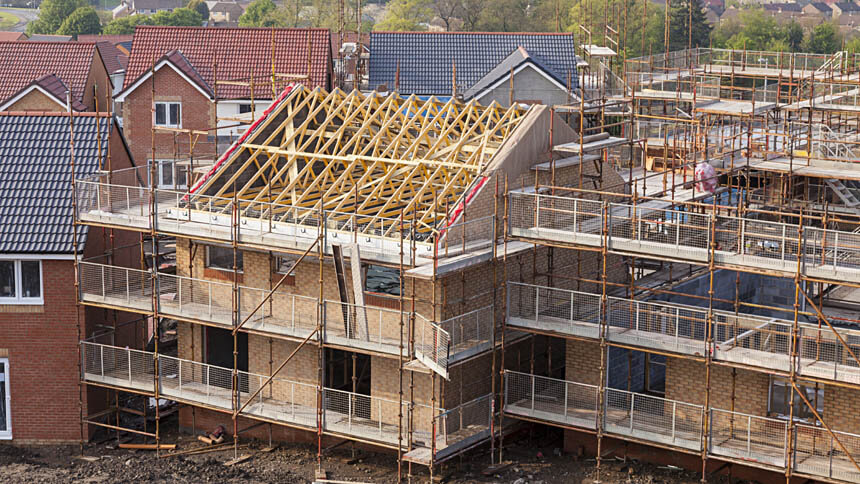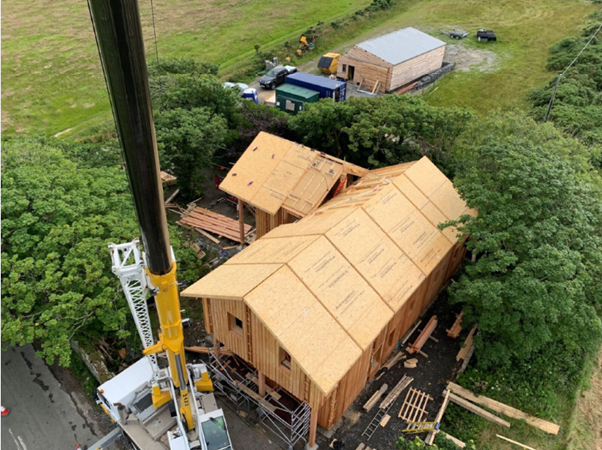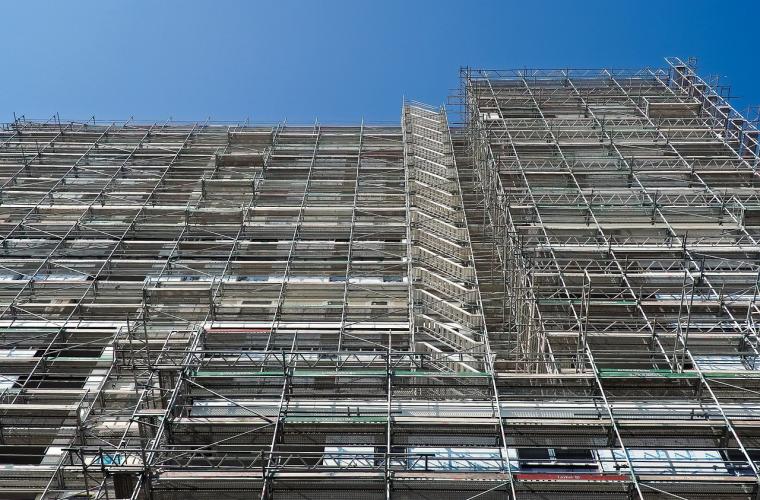Residential construction was the standout performer in the February Index, with starts growing against both the preceding three-month period and the previous year.
Commenting on the findings, Glenigan’s Economic Director, Allan Wilen, says, “Momentum is shifting in the UK housing market. After a sharp drop in transactions and prices, consumer confidence is returning, and mortgage applications surged in 2024 – indicating buyers are re-entering the market even as rates hold steady.
“Housebuilders are responding to the turnaround in market conditions.
“We’re forecasting private housing starts to rise by 13% and social housing by 11% in 2025, meaning construction activity is set to continue its revival.
“A £1 billion investment in housing improvements and Budget support for SMEs and build-to-rent will further broaden development opportunities, setting the stage for sustained growth in the sector.”

Sector Analysis – Residential
Residential construction performance was strong. The sector experienced a reversal in fortunes during the Index period, with the value of project-starts jumping a quarter (+25%) compared to the preceding three months. Starts also grew 6% overall against 2024 figures.
Private housing performance was positive and contributed to this growth, with starts increasing 31% compared to the preceding three months and 26% compared with the previous year.
Social housing also managed an increase on the previous three-month period, with work starting on site increasing 1% despite standing 26% down on year before.
This points to a consensus amongst Britain’s housebuilders to get shovels in the ground, bolstered by a firm government commitment to fresh investment in the built environment. This is having an immediate positive effect on private sector confidence and accelerating project pipelines. Plans to cut red tape in the planning process should also help to unlock development, ensuring housing projects move from approval to construction more quickly.
Sector Analysis – Non-Residential
The value of starts across non-residential sectors grew 2% during the three months to the end of January, finishing 20% lower than a year ago.
Overall performance was weak, with industrial the only vertical to make significant headway on both the preceding three months and the previous year, advancing by over a quarter (28%) to stand 13% up on last year.
Hospitality work also increased against both periods, up 4% on the preceding three months and increasing 17% on the year before.
Health and retail both experienced a mixed period, with the value of underlying project-starts increasing 20% and 6% against the preceding three months, respectively, but standing 32% and 27% down on last year.
Elsewhere the sector slumped. Education construction starts were particularly poor, suffering an 18% fall during the three months to January to stand 30% lower than a year ago.
Office and Community & Amenity project-starts were in decline over the Index period, with falls of 18% and 14% against the preceding quarter, respectively, and both declining against the previous year.
Sector Analysis – Civil Engineering
Civils performance was inconsistent, up 27% on a year ago but down 4% compared with the last quarter. Utility starts dragged down this figure, decreasing 13% against the preceding three months and declining against the year before, down 45%.
Drilling deeper into this vertical, infrastructure activity grew, increasing 3% against the previous three months but declining 12% on a year ago.
Regional Analysis
The North East was the strongest-performing region in the UK, with project-starts increasing 82% against the preceding quarter, to stand 1% up on this time last year.
The outlook for the East Midlands was also optimistic, with starts up 56% on the preceding three months to stand 8% up on the previous year.
Several other regions of the UK experienced growth in project-starts against the previous quarter, including Yorkshire & the Humber (+36%) and the West Midlands (+18%).
Elsewhere, performance was subdued. Wales experienced a 25% decrease against the preceding three months and remained 16% down against the previous year.
London work was poor, with the value of project-starts falling 7% against the preceding three months and by 41% compared with the same time last year.
Allan concludes, “Many will be disappointed the year hasn’t got off to a stronger start, but I would suggest a degree of optimism is in order. We are starting to see some of the economic challenges gradually easing and this is being evidenced through pockets of growth in housing starts and a handful of other non-residential verticals.
“An improved economic outlook, combined with the promised Government investment in large-scale infrastructure projects, will hopefully provide a much-needed shot in the arm to further boost performance in Q.2 and Q.3.”




















